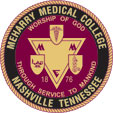Vital Information concerning Graduate Medical Education for Rural Tennessee
RGME.net
Exciting news from
the Rural Health Association of Tennessee
|
Announcement
from Sue Standifer
Past President of RHAT concerning Graduate Medical Education (GME) in Tennessee |
|
| I
am pleased to announce that we have made significant progress in advancing the Revised GME Stipend Program (affectionately termed the R-GME project). As you know, this is a project that RHAT, in partnership with the medical schools, has worked long and hard on and we have now reached a milestone in the implementation of this project. Last week, the
RHAT received a proposed contract from the TennCare I want to take
this opportunity to thank all those folks who worked so Sue Sue Standifer |
Mission statement
To
enhance statewide collaboration on workforce planning and better serve
rural
and underserved communities and health providers in Tennessee by assisting
in the
recruitment, placement and retention of physicians
Click
here to see the Tennessee Recruitment & Retention Plan slideshow
in Powerpoint
(takes approx. 30 seconds
to download)
Important Tennessee stats
Physician to population ratio
URBAN Tennessee
1 to 623 people
RURAL Tennessee 1 to 2015 people
Delta
Study Findings
The US Delta Region (240 counties and parishes in the eight states, including Alabama, Arkansas, Illinois, Kentucky, Louisiana, Mississippi, Missouri, and Tennessee) lagged behind the rest of the nation in health outcomes and healthcare access. The Delta’s infant mortality rate is 26.3 percent above the national average and has a high mortality rate resulting in 10,784 excess deaths per year in the region.
The study states that discrepancies in health status are often driven by a lack of appropriate access to health care. The report points to three key factors which lead to a decreased access to health care: utilization, health care supply, and socioeconomic demographics.
See the National Rural Health Association RGME postion statement here
The central purpose of the RGME project is to work in partnership with the CMS, the Rural Health Association of Tennessee, the four medical schools in Tennessee, TennCare, and the Tennessee Dept of Health to correct measurable discrepancies in health status of Tennesseans by placing more medical providers in rural Tennessee.
2004 RHAT conference in Chattanooga - details coming soon
Susan Veale, Adm. Manager

Rural Health
Association of Tennessee
P.O.
Box 160589
Nashville, TN 37216-0589
615-309-7567
email:
rhatmail@bellsouth.net
Website:
www.rhat.org
|
Hearing
from you
|
On behalf of myself, Dr. Midtling, UTHSC College of Medicine we thank all those who have labored long to make the GME Program a reality....we look forward to working with you in it's implementation allowing our students and residents the opportunity to experience medical care training in the rural environment.
Thanks.
Frank Williams,
University of Tennessee Memphis,
College of Medicine
|
3Rnet
|
3Rnet (3 Rs mean Rural, Recruitment & Retention) is a major component of the Tennessee RGME plan. More on 3Rnet here
|
News
|
Medical schools applications drop
For the sixth straight year, applications to the nation's medical schools dropped. This a 22 % nose dive since 1997. See full story here.Physician shortage predicted
American Medical News reports Council on GME (COGME)calls for 15% increase
in medical school graduates. See full story here.Homegrown doctors
Scholarships attempt to solve physician shortage in rural areas here
|
RGME
Governance
|
RGME committee members
 |
 |
 |
 |
 |
|
|
Patricia
Totty,
RHAT President |
Bruce
Behringer, Assistant V.P. ETSU Health Sciences
Executive Director, Office of Rural and Community Health |
Rhonda
Phillipi, RN |
Sue Sandifer,
|
Bill
Jolley, THA - An Association of hospitals & Health Systems
|
|
Coming
Soon from the
voice of rural Tennessee - RHAT |
Rural Health Association of Tennessee
Resource Database
The RHAT Resources database will help doctors, patients, and the general population find health programs and education in rural Tennessee. RHAT board member, Dr. Chet Gentry leads an effort to fulfill his vision of creating a data base with real-time info to help physicians and health professional better serve rural Tennessean Links to information services on disease and prevention will be added to this Web site in the near future.
Click here to see the current Health Professions Demand Assessment
There are two levels to the process of the RGME program. First, a new not-for-profit organization with a board of directors from multiple institutions and interests will be selected once the new organization is formed.
Second, several task forces will be formed at that same meeting to deliberate and make recommendations about key elements of the program. The task forces are meant to blend the experience and expertise of rural health interests across the state with educators to address three specific program elements. Brief outlines of the charges for the three task forces follow.
Task Force to Recommend Actions to Strengthen the Current GME
Residency Stipend Program
Mary Ann Watson, UT-Memphis, Chair
Larry Coleman, ETSU
Rural physician who has received a stipend
Patrick Lipford, Tennessee Department of Health
Dr. Coney, Meharry deanExpected Outcomes
- Residents receiving stipend awards will have prior experience in rural underserved area practice site(s) and thus improve potential recruitment and retention for matches in rural communities.
- A network of practice sites meeting eligibility criteria for Residency Stipend awardees will be formed.
- There will be increased demand for Residency Stipend awards because of revised program regulations and bundled marketing of Residency Stipends with information about other incentive programs for rural communities.Charge to the Task Force
1. Define suggestions that would technically improve the existing Stipend Program
a. Conduct survey of previous Stipend awardees and the designated medical school representatives to identify changes that would strengthen the marketing, structure, and operations of the Stipend Program.
b. Clarify minimum stipend contract standards that must be included by the TennCare Bureau.
c. Review previous recommendations formulated in the Statewide Recruitment and Retention Plan about combined marketing efforts for the Stipend program with other service contingent incentive programs;
d. Conduct focus group(s) at selected residency programs to identify program characteristics that would be attractive to potential applicants.
2. Generate recommendations that link Stipend awards with primary care residency rotations in rural practices.
a. Identify existing models of primary care residency rotations in rural practice and recommend program of rotations for Stipend awardees.
b. Develop educational criteria that would reflect optimal rural rotations, including types of sites, rural experiences, curricular models and leaning objectives, etc.
c. Identify criteria for model rural practices that could be invited to join a network of sites. Make recommendations about potential funding support needed to engage sites and residents.
Task Force on Statewide Rural Primary Care Resident Curriculum
Dr. Joe Florence, ETSU (family medicine), Chair
Dr. John Midtling, UT-Memphis (family medicine)
Dr. Jerry Hicks, Vanderbilt (pediatrics)
Dr. Chet Gentry, practicing physician and RHAT board memberExpected Outcomes
- One detailed plan for a shared statewide residency event to be made available to all residents interested in rural practice will be designed.
- A list of multiple curricular topics that could be shared statewide and across specialties will be compiled.
- Long-term interest in rural practice in Tennessee among residents in state's primary care residencies will be improved.Charge to the Task Force:
1. Identify graduate medical education programs requirements and identify potential cross-specialty requirements (e.g., practice management training, ethics training).2. Determine how an inter-institutional curriculum could meet the educational needs of medical residents while addressing the special needs of the state's TennCare population and its rural communities.
3. Develop recommendations for elements of a three-year curriculum that would support and cultivate the interests of medical residents who desire rural practice in Tennessee.
a. The curriculum will integrate different types of resident experiences (e.g., statewide seminars, resident weekends, practice experiences, engagement with community/public health projects) that will expose participants to rural Tennessee communities.
b. The curriculum will include topical areas generated in discussions with medical residents and with current rural health professionals (e.g., practice management and financial issues, professional survival and thriving skills in rural communities, etc.)4. Identify how telecommunications can be used in rural practice sites for resident education and for continuing education for new rural heath professionals.
Task Force to Develop Recommendations on the Tennessee
Specialty Resident Rural Practice Experience ProgramBetty Nixon, Vanderbilt, Chair
Dr. Kirchner, Vanderbilt, (urology)
Dr. Bill Brower, ETSU, (surgery)
Dr. Mangione, UT-Memphis, (surgery)Expected Outcomes
- Recommendations that consider specialty resident educational requirements, rural hospital capacity and TennCare care needs will be formulated.
- An evaluation plan will be constructed to measure changes in specialty resident understanding of rural practice and referring providers while documenting improvements in access to specialty services in selected rural communities.
- Plan to upgrade telemedicine capacity for selected rural communities/providers chosen to participate in the Experience
- Community preceptor continuing education and development plan for rural providers.Charge to Task Force
1. Produce recommendations that will:
a. Identify a set of desired specialty resident knowledge, attitudes and future practice pattern objectives.
b. Identify and recommend potential specialty residencies including all four medical schools and related teaching hospitals across the state that could become involved.
c. Generate potential models for rural experiences including both specialty resident/attending and specialty resident/rural physician time in selected rural hospital and practice sites that will meet both educational objectives and improve delivery of specialty care and referral communication at rural sites.2. Use data from TennCare Bureau to identify rural counties/regions with specialty care access difficulties and types of care involved.
3. Generate recommendations for a request for proposal process to match rural sites with specialty residency programs to include:
a. Descriptive materials including program goals, strategies and objectives
b. Proposed budget areas
c. Bidding process and criteria for selection of participating pairs of programs and hospitals
Task Force to Develop Rural Recruitment & Retention Program
Bruce Behringer, ETSU and RHAT board member
Bill Jolley, Tennessee Hospital Association and RHAT board member
Roger Chalkley, Vanderbilt
Phil Campbell, CAH Resources
Sally Buck and Vicki Trauba with the Rural Health Resource Center, Minnesota Center for Rural Health is a consultant on this project with Phil Campbell, FACHE. More about the exemplary Minnesota rural physician recruitment model here
|
|
|
Phil
Campbell, FACHE |
 |




